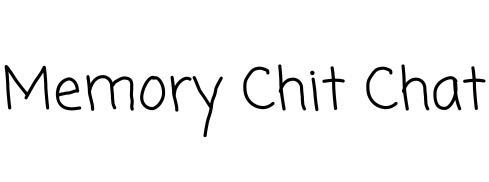Mental Stimulation Tips for Seniors
As our loved ones age, it becomes increasingly important to engage with them in a way that stimulates them mentally and keeps their minds sharp. This may help reduce the effects of cognitive problems that can result from aging or dementia.
The words “cognition” and “cognitive” are used frequently in reference to one’s mental state. But what is cognition? It actually involves many aspects of brain functioning including:
- Attention and concentration
- Memory
- Reaction time
- Mental flexibility
- Reasoning and judgment
- Word retrieval
- Pragmatics: including topic maintenance, turn taking, impulsivity and eye contact
- Executive functioning: including problem solving, goal setting, initiating and inhibiting behavior, self monitoring and anticipating consequences
A good diet, adequate sleep and exercise provide the physical basis for maintaining cognition as we age. And there are various types of mental activities that can stimulate these brain functions for seniors as well, such as playing games, cooking, doing crossword and other word puzzles, jigsaw puzzles, reading, socializing, watching and discussing TV and movies, and using memory tools such as calendars, lists and notebooks.
We have a more extensive article about how to communicate with those that suffer from memory loss as a result of a variety of conditions such as aphasia and dementia.
Many of the components of cognition also can be stimulated using social themes in language based activities. Social themes are recurring or past topics of common interest in society and provide an excellent source for stimulating cognition and communication. Because the material contained in social themes is familiar and personally relevant it has strong associations in an individual’s brain and facilitates processing and retrieval. e
Social themes to help with mental stimulation in elderly people
- Major and minor holidays
- Historical and current events
- Changing seasons
- Political and patriotic issues – past and present
- Entertainment – music, movies, TV, etc
- Sports
- Life events – weddings, birthdays, retirement, jobs, etc
- Famous people
- Domestic topics – food, gardening, shopping, animals, money
10 ways social themes stimulate memory, cognition and communication with seniors
- They are familiar and relate to real life experiences, topics preferred by many older adults.
- Memory is stimulated by the emotion, humor and controversy that is inherent in many themes.
- They provide opportunities for validation of life’s experiences and accomplishments.
- In a group, shared knowledge of common themes facilitates communication.
- They provide opportunities for reminiscing and accessing long term memories.
- They provide orientation to seasonal and current events.
- The inherent redundancy and familiarity of many themes facilitates memory as many of these events have occurred over and over in a person’s life.
- Material is often personally and culturally relevant, thus powerfully motivating for communication and tapping into long term memories.
- In a group, meaningful communication is facilitated among varied socio-economic groups due to shared knowledge of these common social events and topics.
- Controversial topics stimulate reasoning, judgment, mental flexibility and pragmatic skills.
Social theme materials that can provide mental stimulation for seniors
- Magazines appropriate for each individual’s interest, such as Newsweek, Vogue, Us Weekly, etc. Photographic or coffee table books of interest
- Video clips from famous movies or relating to animals, travel, TV shows
- Personal photo albums or scrapbooks
- News paper clippings – current events, Dear Abby, cartoons
- Trivia
- Personal items, such as photos, ticket stubs, programs, greeting cards, menus
- Advertisements
- Catalogs (seed catalogs for gardeners, etc)
How trivia can help stimulate mental sharpness in elderly people
- Draws from the general fund of knowledge
- Stimulates long term memory
- Easy trivia is familiar and provides opportunities for word retrieval.
How to use social themes to stimulate memory, cognition and communication in seniors

- Appropriate for those who are alert and non confused, may have early stage dementia, or have mild to moderate communication handicap.
- In a small group, ideally 5-8 participants, introduce any new members.
- In a group, begin by asking, “How was your week?”
- In a group ask one group member to ask the others to tell about their week or to share anything they want to. “Is there anything you want to share today?”
- Establish the theme. Eg: “Today in honor of Labor Day let’s talk about work and job issues.”
- Memory exercise using short paragraph material. This type of activity stimulates comprehension, attention, concentration and memory. Read a short paragraph about Labor Day or a short news item relating to work or labor and then ask questions. Yes/no or choice questions are easier: Eg: Did this take place in Europe? Or Did this take place in America or Europe? In a group let participants answer unanimously to avoid putting anyone on the spot.
- Optional – Does anyone want to try to re-tell this information?
- Discussion questions relating to the theme. Discussion questions stimulate verbal expression, word retrieval, problem-solving, abstract reasoning, reminiscing, topic maintenance and eye contact. Eg: What kind of work have you done in your life? Were you ever the boss? What do you think about salaries today? Let the conversation take its natural course, even if off topic.
- In a group, instead of the leader asking all the questions, encourage other group members to initiate getting more information. Eg: What should we ask Jack about his retirement? Or Someone might want to ask Jack how he felt about retiring. If one-to-one, encourage questions. Eg: Is there anything you want to ask me about my work? What would you like to ask your son about his work? Group leader should intervene to encourage less verbal participants and to discourage monopolizing.
- Trivia. Trivia questions facilitate word retrieval and long term memory from the general fund of knowledge. If too hard, give choices. Eg: Is it Washington or Lincoln?
- Conclude session with look forward to the next meeting. Stimulate prospective memory by asking what anyone has to look forward to in the near future.
Conclusion
As you can probably imagine, some of these methods take some effort. Organizing a group setting for seniors, for instance, takes a little work. But this is the type of setting that cognitive therapists often prefer to work in. However, many of these strategies can be used with individuals, as well.
Humans are social creatures, so appealing to that social instinct is an effective vehicle for cognitive stimulation.
We hope you and your loved ones benefit from these mental stimulation techniques for seniors!
Barbara Van Dyne, M.A., speech-language pathologist has worked for decades in a variety of rehabilitation settings, including inpatient and outpatient rehabilitation, home health, private practice and skilled nursing facilities.
She holds a Master's Degree from The University of Kansas in Speech and Language Pathology.
She is the author of Memory Chit Chat, a clinical manual with exercises that leverage social themes for therapeutic purposes offers meaningful engagement, repetition, familiarity, personal relevance, and a connection to seasonal and cultural events
She has taught memory improvement classes and served on the advisory board of the Stroke Support Group of Northern California. Prior to her retirement she was certified by the American Speech and Hearing Association and licensed as a speech pathologist in the state of California.






